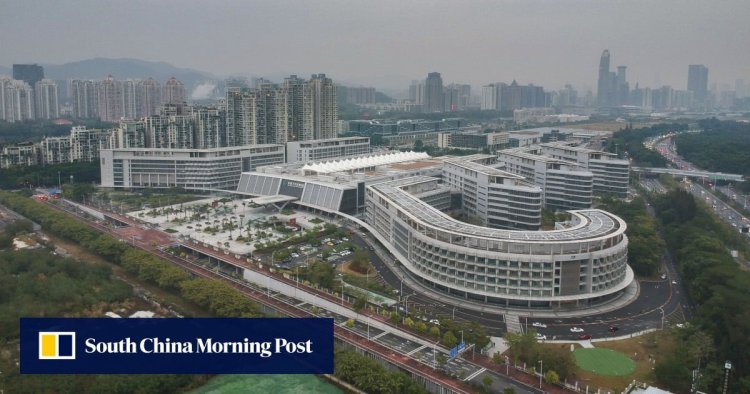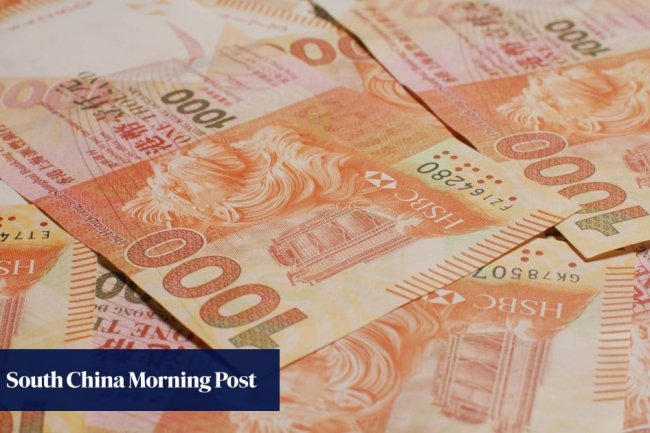Hong Kong ‘should play leading role’ to bring healthcare in mainland China ‘on par’ with city standard, integrate services
2023.06.30 10:30Medical services in mainland China can be on par with those in Hong Kong if the city takes a leading role in training professionals in the region, according to health secretary Lo Chung-mau.Discussions with mainland health authorities were also under way to provide better services for Hongkongers living across the border, including wider coverage under an elderly voucher scheme, and mutual sharing of electronic health records.Hong Kong can attract pharmaceutical giants by ‘having own drug regulatory system’“The Covid-19 pandemic taught us a lesson that it’s crucial to standardise healthcare services [in Hong Kong and on the mainland], to integrate with the Greater Bay Area,” Lo said in an exclusive interview with the Post. “We should achieve a high standard on both sides, but not drag one side down.Examples cited by Lo of how Hong Kong could take the lead in improving medical standards include specialist training for doctors across the border.The bay area refers to Beij


Medical services in mainland China can be on par with those in Hong Kong if the city takes a leading role in training professionals in the region, according to health secretary Lo Chung-mau.
Discussions with mainland health authorities were also under way to provide better services for Hongkongers living across the border, including wider coverage under an elderly voucher scheme, and mutual sharing of electronic health records.
Hong Kong can attract pharmaceutical giants by ‘having own drug regulatory system’
“The Covid-19 pandemic taught us a lesson that it’s crucial to standardise healthcare services [in Hong Kong and on the mainland], to integrate with the Greater Bay Area,” Lo said in an exclusive interview with the Post. “We should achieve a high standard on both sides, but not drag one side down.
Examples cited by Lo of how Hong Kong could take the lead in improving medical standards include specialist training for doctors across the border.
The bay area refers to Beijing’s scheme to integrate Hong Kong, Macau and nine cities in the Guangdong province into an economic powerhouse.
Promoting healthcare integration with the bay area was one of the three goals laid out by the health chief when he took office in July last year.
Lo noted that many elderly Hongkongers living on the mainland had returned to the city regularly for medical appointments until the border was closed during the pandemic.
He said having to travel back and forth was too demanding for older residents, and not a sustainable solution, adding one of the focuses to address the issue would be expanding the coverage of the elderly healthcare voucher scheme.
A picture of health: medical struggles for Hongkongers in bay area
The scheme, which covers all Hong Kong residents aged 65 or above, provides an annual subsidy of HK$2,000 (US$255), which can be used at private health institutions for primary care services.
At the moment, only The University of Hong Kong–Shenzhen Hospital and a community clinic run by it accept healthcare vouchers on the mainland.
The government earlier vowed to include more mainland institutions on the schemes’ list, with priority given to those with a “Hong Kong management model” and a good understanding of how the vouchers work.
Lo said local authorities were working with their mainland counterparts to address enforcement challenges when cases of abuse arose.
Hong Kong adds more mainland, overseas universities to non-local doctors’ scheme
“Perhaps [the healthcare service provider] could have a person in charge with a Hong Kong background, so it can be held accountable,” he said.
“We are also exploring if the Health Commission of Guangdong province, or Shenzhen, could help us monitor the usage of the vouchers. They also have a monitoring mechanism for their own public health insurance … and their response has been very positive.”
Lo said authorities would expand the scheme’s coverage as soon as details were finalised.
“That was taxpayers’ money, and we can’t afford to roll back the measure … We are taking small but stable steps to prevent this from happening.”
He added that another key step was to establish a mutual-sharing mechanism for health records between Hong Kong and mainland hospitals, but there were challenges related to ensuring patient privacy and compliance with the Personal Information Protection Law across the border.
Currently, the HKU-Shenzhen facility is the only mainland hospital that can access patients’ health records in Hong Kong with their authorisation, under a special scheme launched in November 2020 to support those stuck across the border.
Since many residents that received medical support on the mainland have returned to the city, Lo said authorities were also working with HKU-Shenzhen Hospital to transfer their health records back to Hong Kong, so that local healthcare workers could gain a better understanding of patients’ conditions and prescriptions over the past three years.
The only policy that went beyond the Shenzhen facility was the special permission granted to 19 hospitals to use certain Hong Kong-registered drugs and devices.
Lo, then chief executive of the HKU-Shenzhen Hospital, recalled the challenges of implementing the policy, which essentially permitted the usage of drugs that were illegal elsewhere on the mainland.
Hong Kong makes over 130 job offers to doctors based in UK as part of hiring bid
“We had to ensure the drugs would only be used on patients with prescriptions and not be resold, but we can’t always keep an eye on them,” he said.
“We subsequently developed a mobile app requiring patients to scan the code on the package, register with facial recognition scans, record on video the process of taking the drugs, and upload it … It was truly an innovation.”
He said the HKU-Shenzhen hospital served as the starting point for many new policies and the impact of having Hong Kong registered drugs on the mainland could radiate across the bay area and benefit the region’s population of 80 million when the successful model was replicated at other hospitals.
In the long run, the entire bay area should also seek to improve the training standards of healthcare professionals, with Hong Kong taking a leading role, Lo said.
Hong Kong welcomes more Guangdong healthcare workers under exchange programme
“Hong Kong must not export its talent … instead we should export our quality, management model, medical culture, professionalism, research and training,” Lo said. “We are strong in quality, but not quantity.”
The Hong Kong Academy of Medicine set up a specialist training centre at HKU-Shenzhen Hospital in 2019, covering four fields.
On top of the three-year national residency training for mainland doctors, the academy will provide an additional four years of specialist training, matching international standards of specialist training frameworks.
The “3+4” framework is expected to cover more specialities and expand to more hospitals in Shenzhen, and the bay area.
“In the future, no matter where people go, there is no need to worry about the quality of healthcare services any more, because the training standards for doctors are very similar to that of Hong Kong’s, though not identical.”
“Hong Kong can become the biggest contributor to professional healthcare training in the bay area, and we will benefit from that too.”
Additional reporting by Sammy Heung
What's Your Reaction?

















